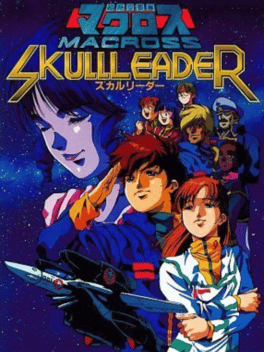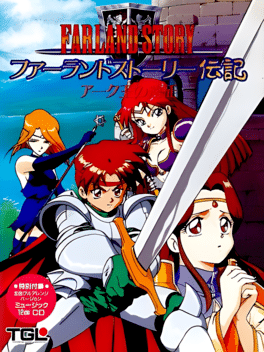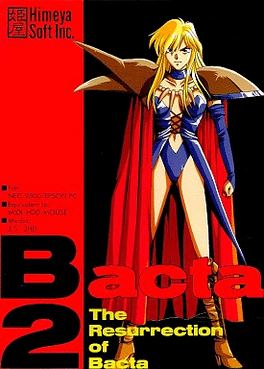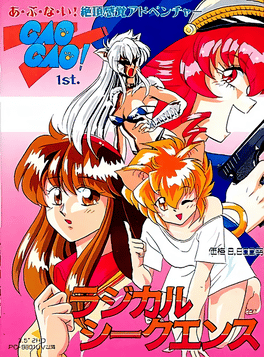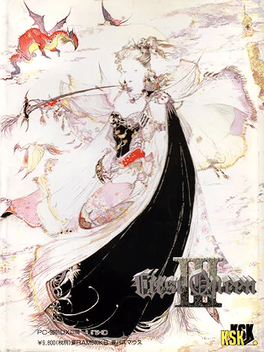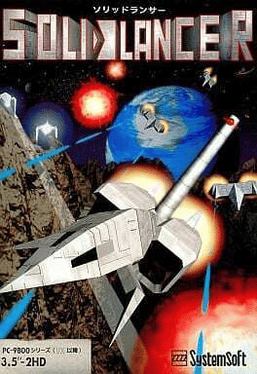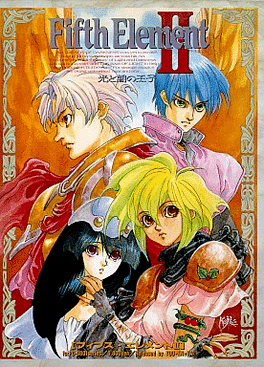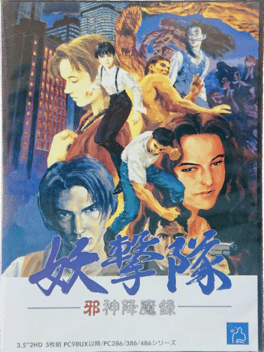New Pc 9800 Series Games - Page 7
-
Atlantia
1994
Atlantia
1994
A journalist from the Fame magazine, along with a photographer, is sent on the maiden voyage of the luxury cruise ship Atlantia. The assignment is to get an interview from the sheikh of Harrout -- the owner of the ship. Aboard, several sudden explosions rock the ship, and a voice from the announcement system tells: We are sinking! Get to the lifeboats immediately -
Paradise Heights
1994
Paradise Heights
1994
Paradise Heights is an eroge VN where the protagonist inherits managerial duties of an apartment complex inhabited mostly by amorous women. -
Concert
1994
-
Slayers
1994
Slayers
1994
The first video game based on the Slayers light novel series. The game follows Lina & Gourry's adventures in several places surrounding a city called Wilnan. -
Possessioner
1994
Possessioner
1994
Possessioner is primarily a Japanese-style adventure game. The player selects verb commands from a menu and combines them with objects appearing afterwards to interact with the environment and trigger events. Navigation is menu-based as well. The game also contains sporadic turn-based battles against the Possessioners and their minions. Four female combatants have a variety of attacks at their disposal, but the battles are fairly simple and there is no role-playing system. The game contains scenes with nudity and explicit, exclusively lesbian sex scenes. -
Farland Story Denki: Arc Ou no Ensei
1994
This is a sequel to the first Farland Story game, released in early 1994. The game looks very similarly to its predecessor. The entire gameplay is dedicated to strategic battles, during which you navigate your large party in turn-based mode over the world map. Once you have issued commands to all your party members, it's the enemies' turn to act. You can attack enemies when they are in range of your weapon, or cast healing and offensive area spells. Your characters level up, can use items, and equip a variety of weapons and armor pieces. -
Bacta 2: The Resurrection of Bacta
1994
The sequel to Bacta directly continues the story initiated in the first game. The paranormal investigator Jinpachi Tanaka was unable to defeat the female demon Dirsala, and she intends to resurrect the mysterious magical creation known as Bacta. In order to prevent that Jinpachi must work together with the local police and his faithful assistance, all the while continuing to save young women from demonic possession. Gameplay-wise, the sequel is identical to the predecessor. The Japanese-style adventure gameplay relies on selecting verb commands and combining them with objects in a text menu. It is impossible to get stuck or permanently die in the game, and many of the options, though not necessary to select for triggering the next event, are there for humorous reasons. -
Gao Gao! 1st: Radical Sequence
1994
The protagonist of the game is a college student named Yuuji Shibata. One evening, just after hearing on the news that someone has stolen a tiger, he goes out to a convenience store. On the way back, in a dark alley, he notices a strange creature, a young girl with cat ears and tail. She doesn't seem to remember anything about herself, except her name beginning with the syllable "Mi...", which afterwards earns her the nickname Mi. Yuuji brings her to his house and tries to introduce her to the world of humans. (which, naturally, also involves techniques of human procreation). But will Yuuji be able to keep Mi as his companion (sexual and otherwise), or will he have to face her mysterious past?.. -
Aggregate
1994
-
Agalta
1993
Agalta
1993
A fairly traditional Japanese RPG developed by the doujin circle Fenrir with all the familiar ingredients of the JRPG genre, There is, however, a real-time element in the combat, similar to the ATB system of Final Fantasy series. -
First Queen III
1993
First Queen III
1993
First Queen III is a Strategy game featuring artwork by Yoshitaka Amano. It was developed and published by Kure and released in Japan in 1993. -
Alvaleak Boukenki
1993
-
Ike Ike Dendai Bus
1993
-
Solid Lancer
1993
-
AIDS Watashi o Aishite... Jin'ai Seijin
1993
Main hero is an ordinary salary-man of 25 years old. He has a girlfriend, but they have not spent much time together since the beginning of the week. Now hero gets a bonus payment at work. How will she spend the money? -
Godzilla
1993
Godzilla
1993
Godzilla is a game for the NEC PC-9800 series developed by SystemSoft and released in 1993. -
Yougekitai: Jashin Koumaroku
1993
As the newest member of a paranormal detective group operating in the greater Tokyo area, it's your responsibility to help keep modern-day Japan safe from demons, monsters, ghosts, and various mythological figures. Manage your coworkers' schedules to conduct research & development, investigate reports of local anomalies, and venture out to fight and detain evildoers. Succeed at these tasks and you might come closer to solving the mysteries and conspiracy behind this earthly invasion! Yougekitai is a 1993 Telenet DRPG/strategic simulation game where you run an agency of professionals tracking and containing dangerous entities in bubble-era Japan. The game switches between your headquarters, where you oversee day-to-day operations, and dungeons where you & your party fight enemies and explore for items or information. Character abilities range in exploration and combat, from forensics to ESP powers. While the game's story has a set cast, your selection of team members is randomized upon starting a new game, and miss
